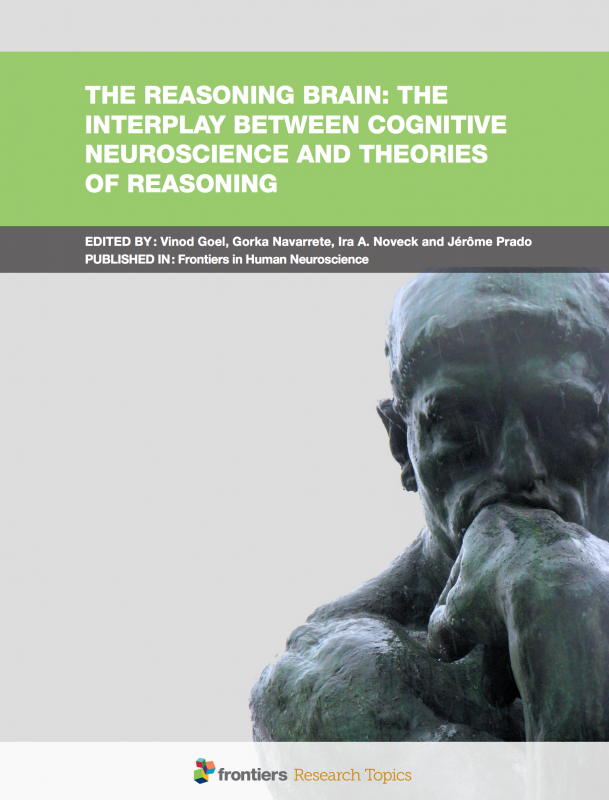Abstract: The ability to reach logical conclusions on the basis of prior information is central to human cognition. Yet, it is generally agreed that the state of our knowledge regarding the mechanisms underlying logical reasoning remains incomplete and highly fragmented (e.g., Khemlani and Johnson-Laird, 2012). The emergence of functional neuroimaging over the past 20 years—and its ability to examine reasoning at the level of recruitment of cortical systems—provides an additional source of data to, not only better understand reasoning as a phenomenon, but to test different theoretical approaches. This has the potential to both prune the number of theoretical explanations of reasoning, but also to expand the space of possibilities in directions unanticipated by behavioral data. This Research Topic explores the extent to which neuroimaging and brain-lesion studies have informed cognitive theories of reasoning. It includes a selection of 20 empirical and theoretical papers from 69 authors. Below we briefly review these papers by breaking them down into two types of contribution, (i) original research articles, and (ii) review and methodological articles.


